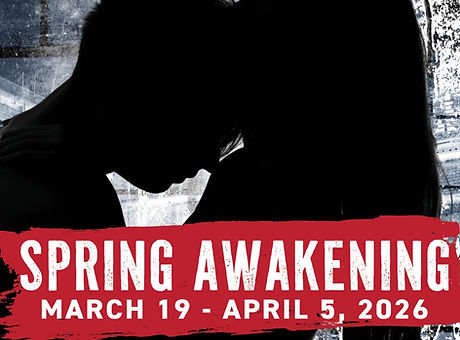
PRODUCTIONS
Current/Recent Creative Work

AUDITIONS IN JANUARY 2026
Recent News: August 2025 Staged reading of my translation of Oh, These Times! by Catherine the Great
(Midsommer Flight, Chicago, IL)
Co-sponsored by Expand the Canon

-
Aitu Fafine by Victoria Nalani Kneubuhl (Kumu Kahua Theatre, 2024)
-
Indecent by Paula Vogel (OHPN/ARTS at Marks Garage, 2019)
-
June is the First Fall by Yilong Liu (Kumu Kahua Theatre, 2018)
-
The Spitfire Grill (Kennedy Theatre, 2017)

UPCOMING PRODUCTION:
SPRING AWAKENING
Mānoa Valley Theatre
RECENT PRODUCTIONS

PUBLICATIONS


NEW BOOK!
BLACK ACTIVISTS WRITE WHEATLEY AND WASHINGTON: TERRELL, DU BOIS, AND THE DRAMA OF THE 1932 BICENTENNIAL
O’Malley’s new book examines how early twentieth-century Black theatre artists depicted national mythologies of the United States. White-authored pageants and plays written for the 1932 Bicentennial celebration of George Washington’s birthday relegated Black Americans to the periphery through racist stereotyping. Black activists Mary Church Terrell and W. E. B. Du Bois seized the opportunity to place Black people at center stage and to revise contemporary views of Washington and of Black achievement. Terrell’s Historical Pageant-Play Based on the Life of Phyllis Wheatley and Du Bois’s George Washington and Black Folk dramatize how the achievements of Black men and women fit into the US origin story. O’Malley also includes her edited version of Terrell’s script, published here for the first time.
AFFORDABLE E-BOOK OPTION
THE DRAMATIC WORKS OF CATHERINE THE GREAT: THEATRE AND POLITICS IN EIGHTEENTH-CENTURY RUSSIA
The first in-depth study of Catherine the Great's plays and opera libretti, this book provides analysis and critical interpretation of the dramatic works by this eighteenth-century Russian Empress. These works are shown to be remarkable for their diversity, frank satire, topical subject matter, and stylistic innovations. O'Malley reveals comparisons to and influences from European traditions, including Shakespeare and Molière, and sets Catherine in the larger field of Russian literature in the period, further illuminating her relationship to the aesthetic debates of the period. The study investigates how Catherine expressed her social ideas throughout her drama and exploited the stage's power to promote political ideals and ideology. O'Malley sets close textual analysis within an historical framework, analyzing the major plays according to content, style, themes, characters, and relation to Catherine's life and political aims.
Now available in Paperback


TWO COMEDIES BY CATHERINE THE GREAT, EMPRESS OF RUSSIA: OH, THESE TIMES! AND THE SIBERIAN SHAMAN
Catherine the Great (1729-1796) wrote over two dozen plays and operettas, but not until this edition has a complete translation of any of them been available to an English- speaking readership.
Oh, These Times (1772) is a satirical attack on many vices Catherine wished to root out from her society: religious hypocrisy, superstition and slander. The main character, Mrs. Pious, is a superficially religious old woman who resembles Moliere's Tartuffe.
Catherine again sets her sights on superstition in The Siberian Shaman (1786), this time by satirizing shamanism as a deceitful profession which preys on the gullible. This play was part of a group of three plays usually known as Catherine's "anti-masonic" trilogy, written as a warning against the growing influence of the freemasons.
In a comprehensive introduction, Lurana Donnels O'Malley relates the plays to Catherine's status and philosophy.
Contact me directly for access to these translations.
News Flash: My translation of Oh, These Times! was chosen for Expand the Canon's 2024-25 curated list of classic plays by women and gender expansive writers. Expand the Canon
